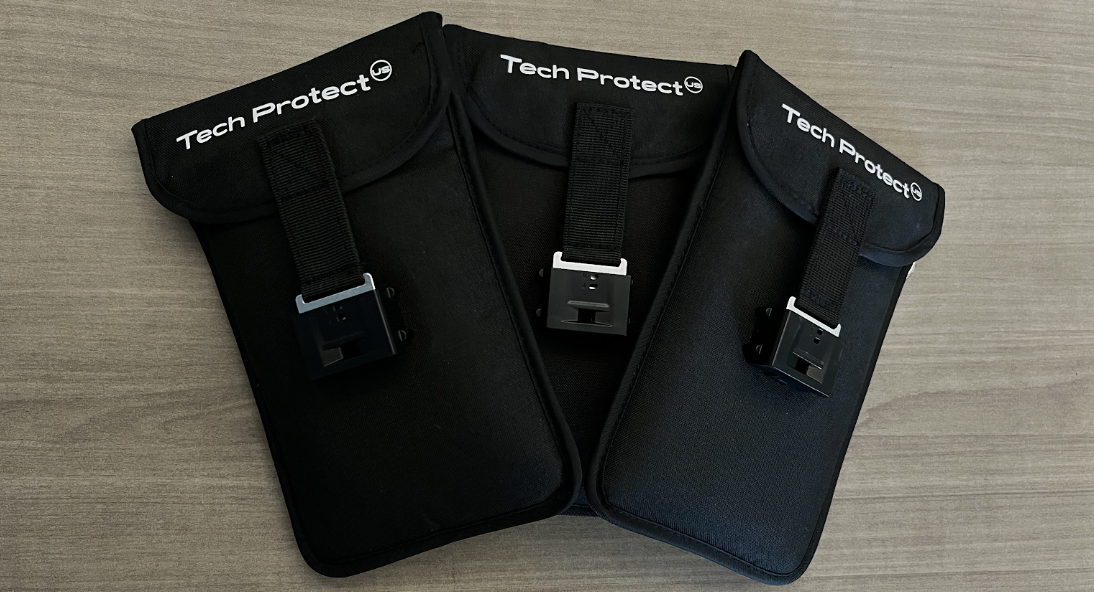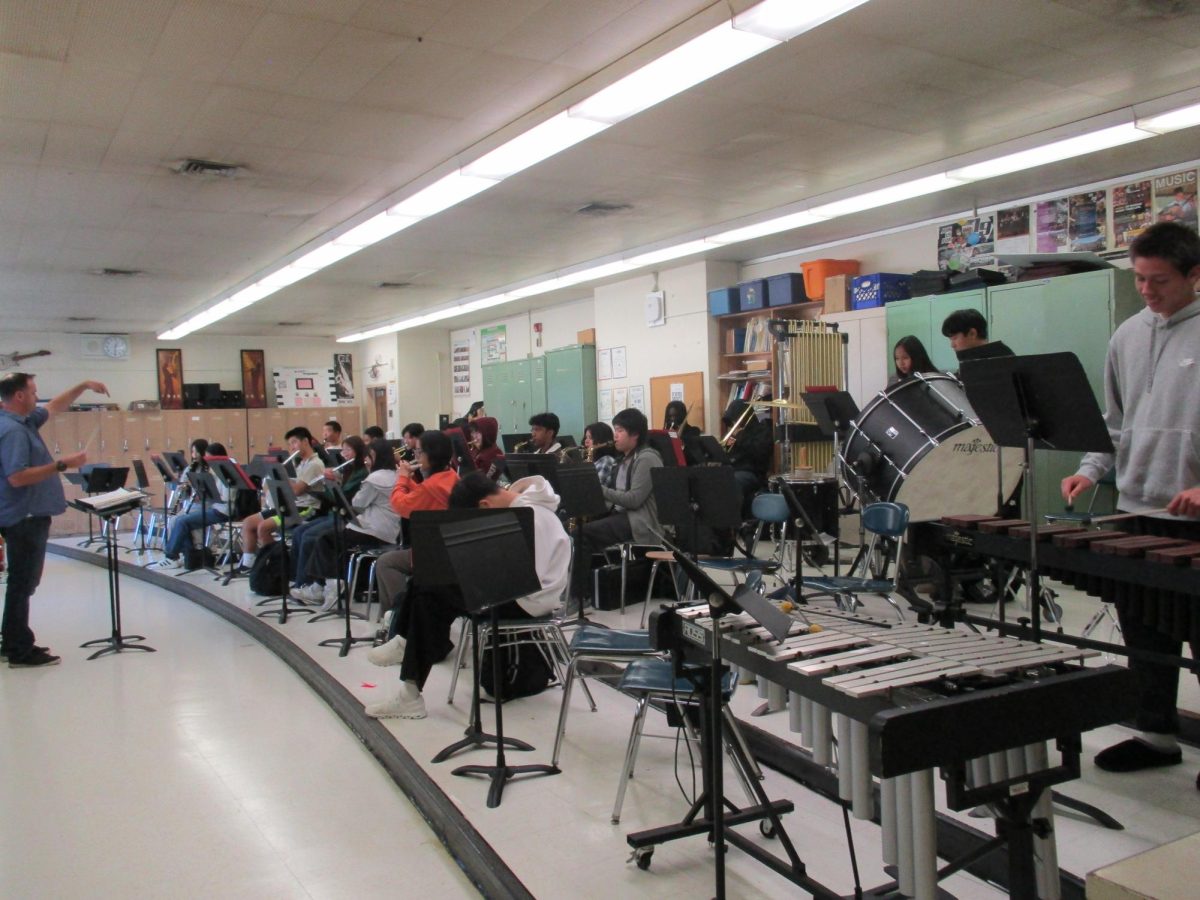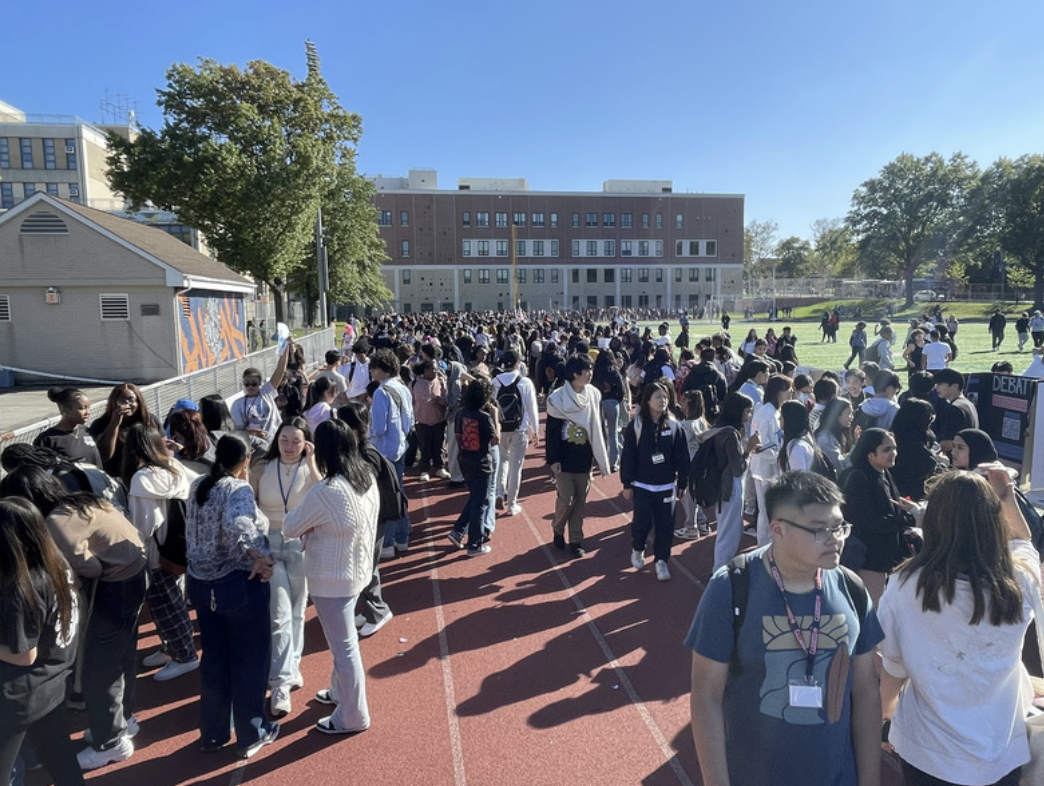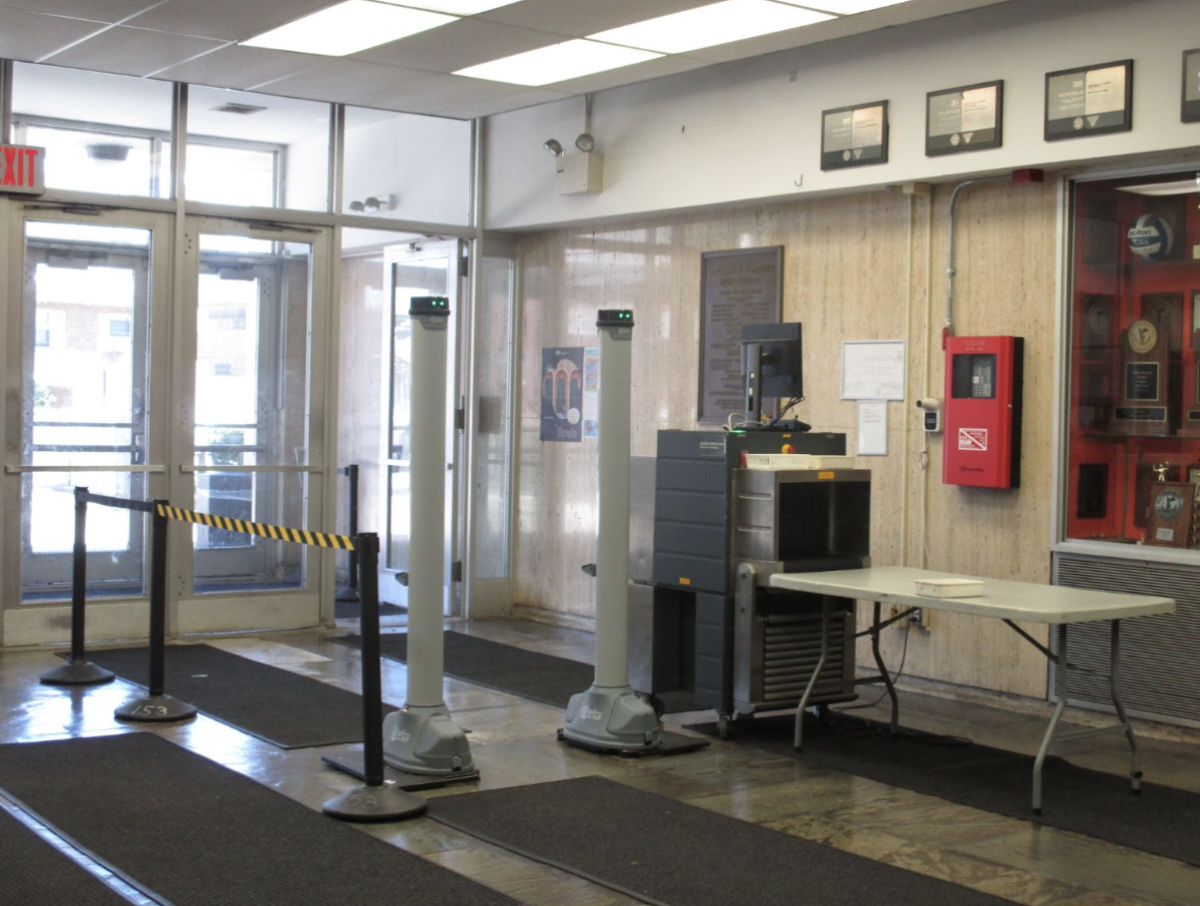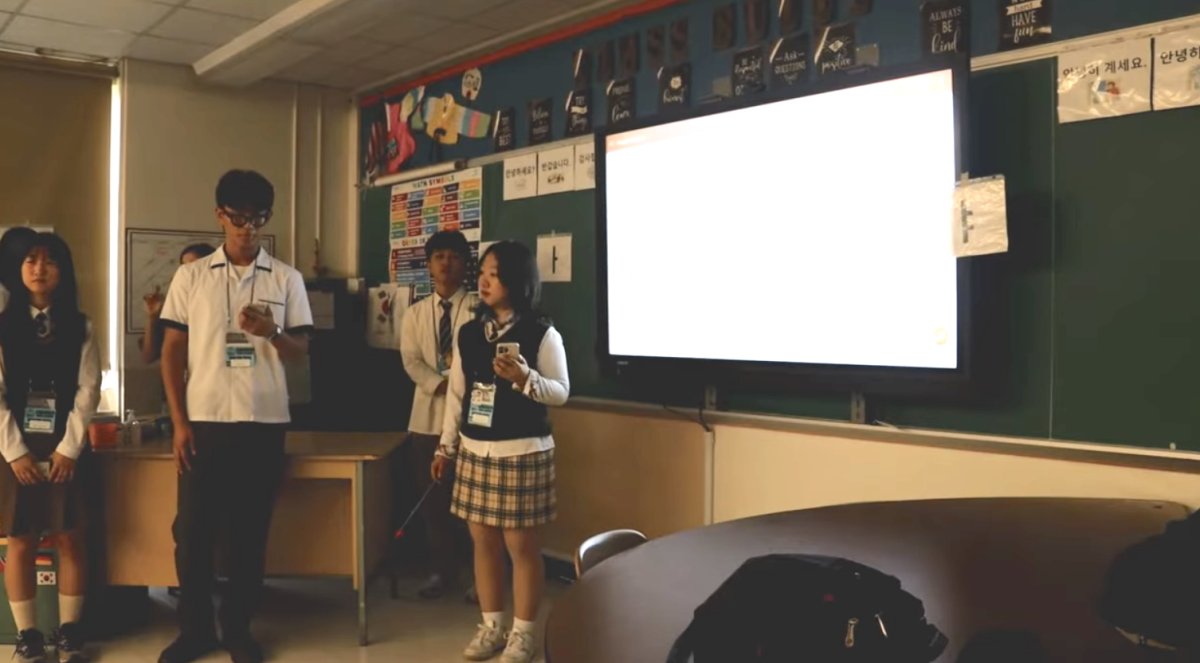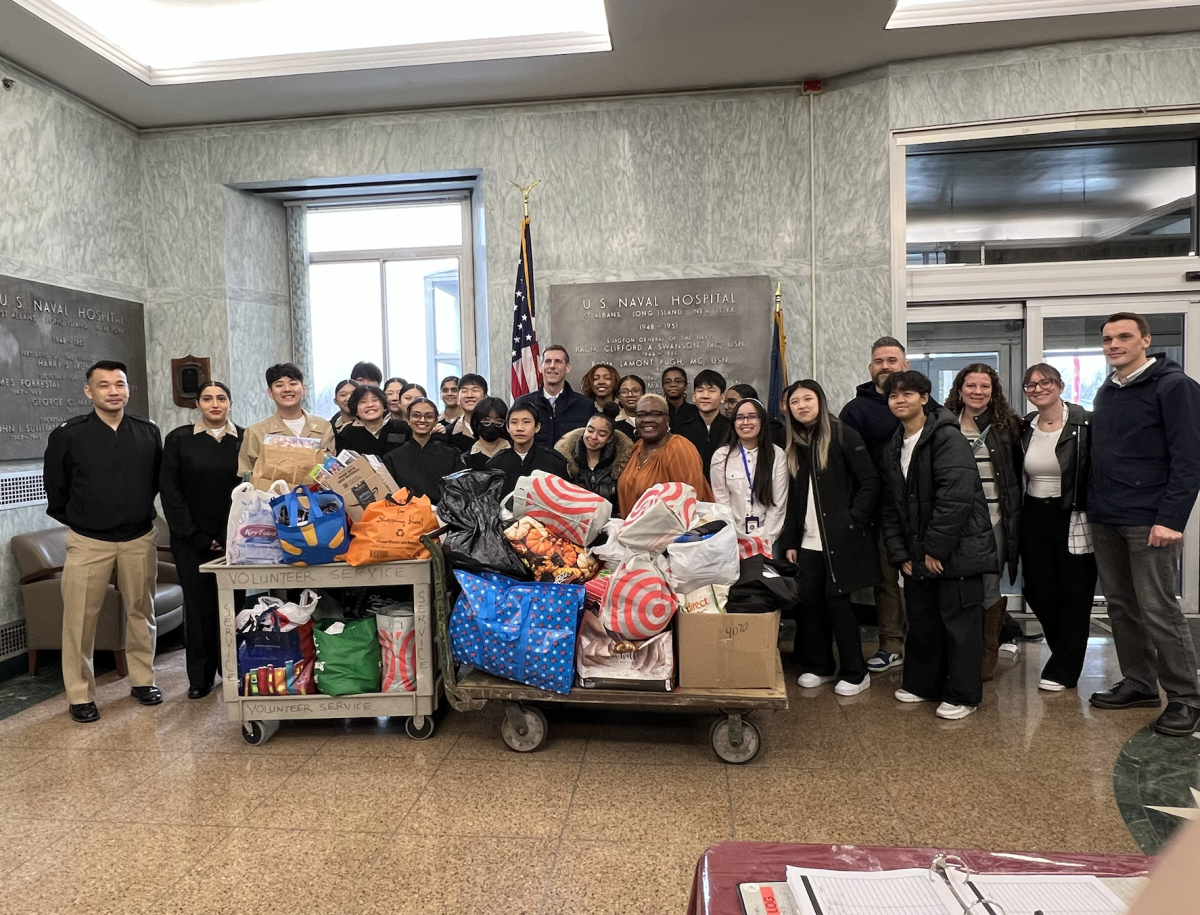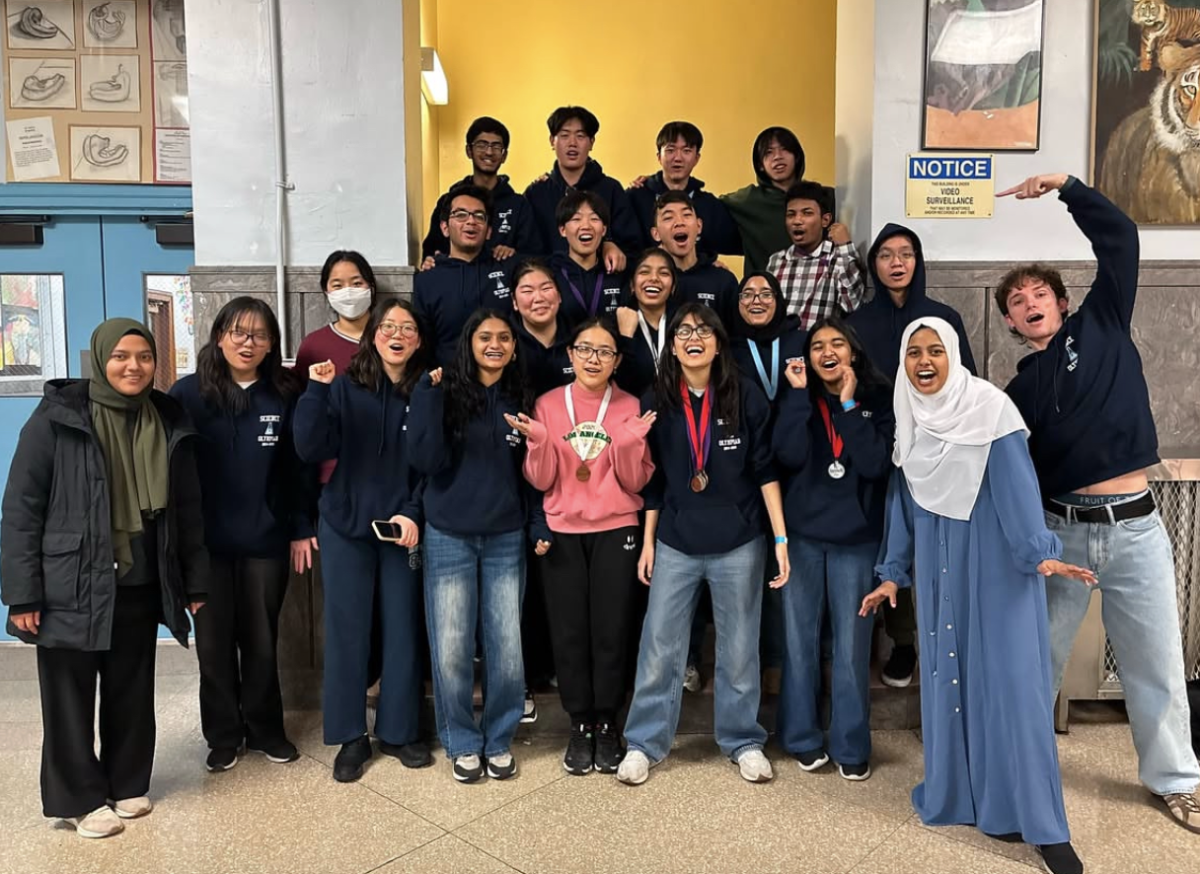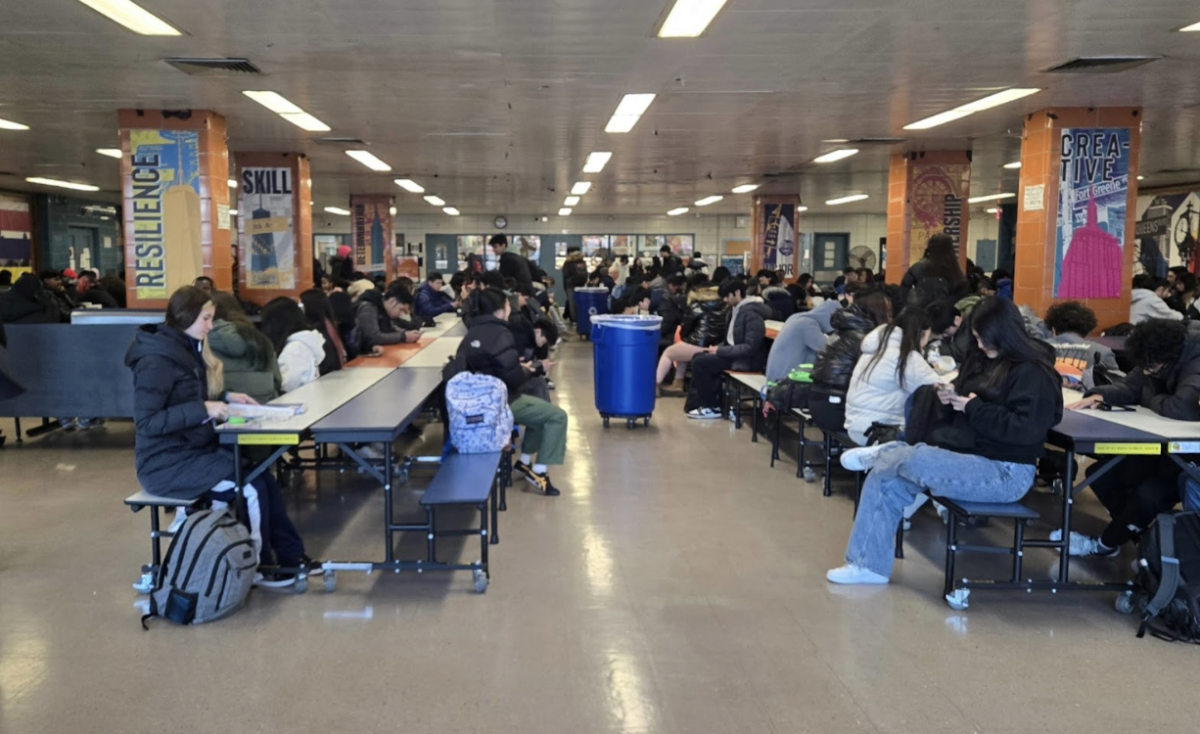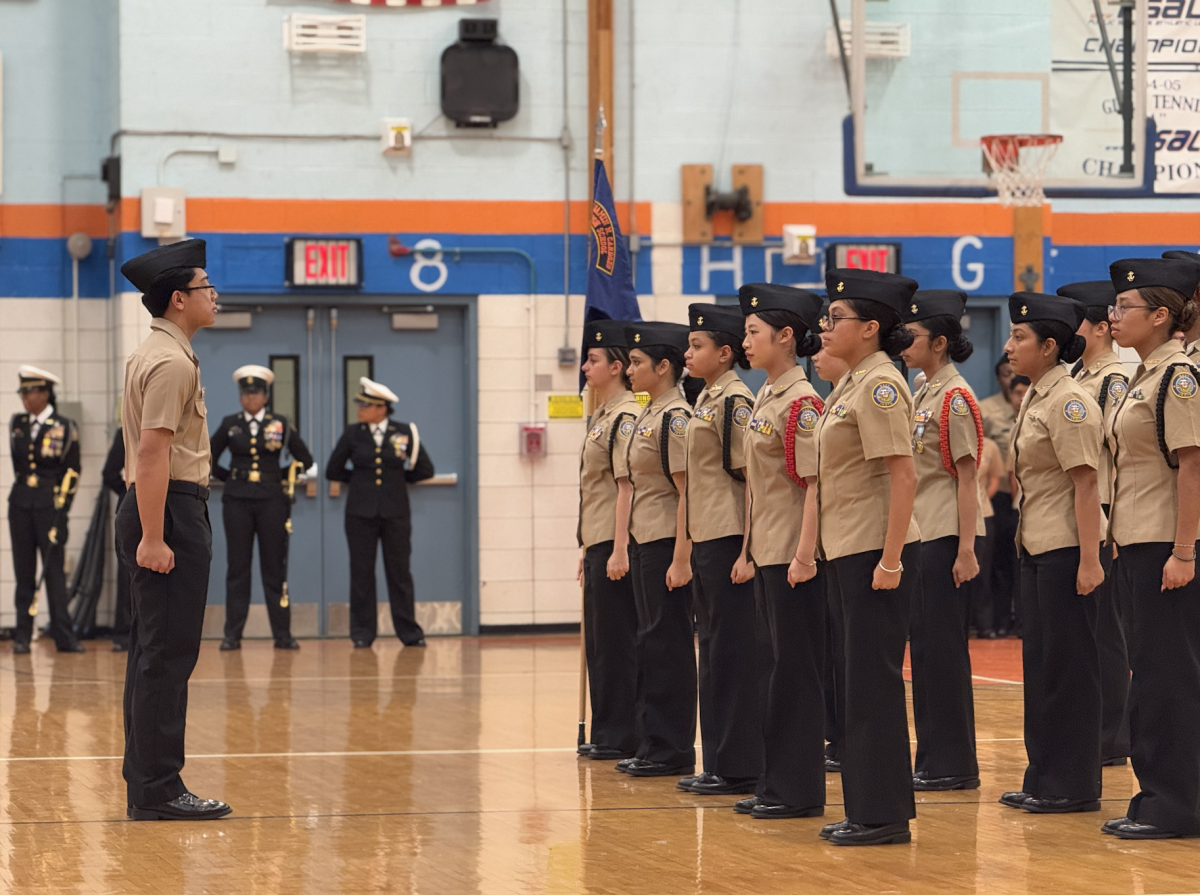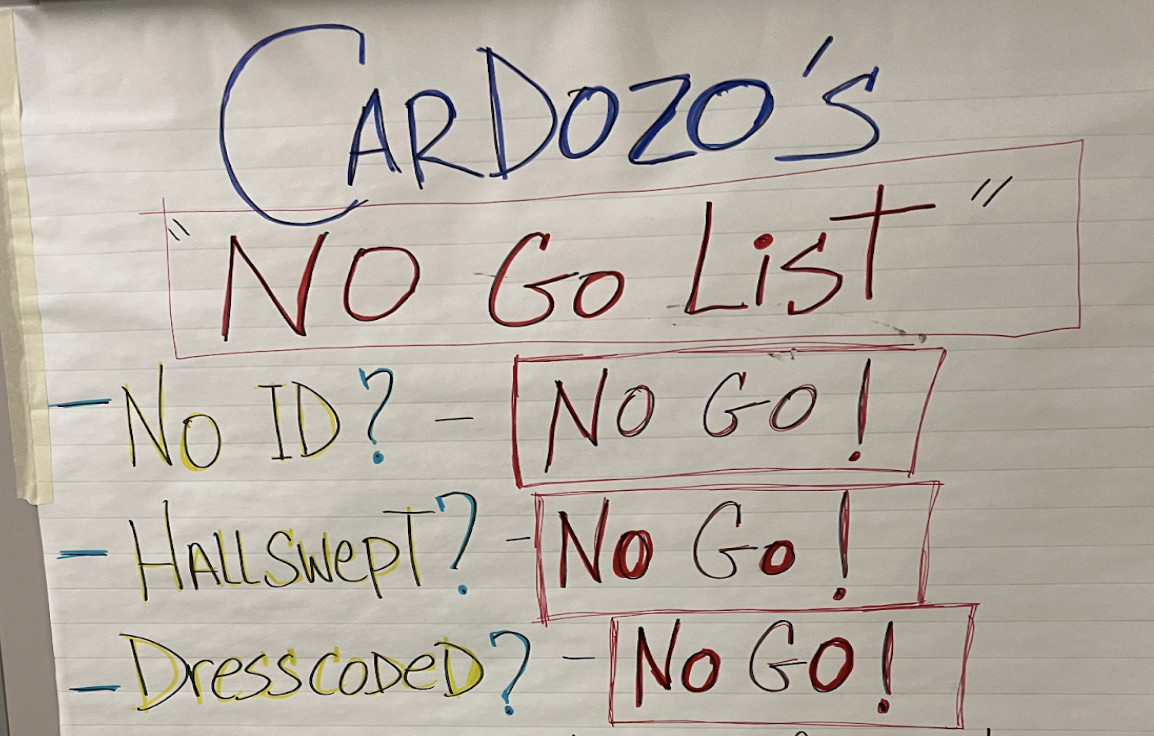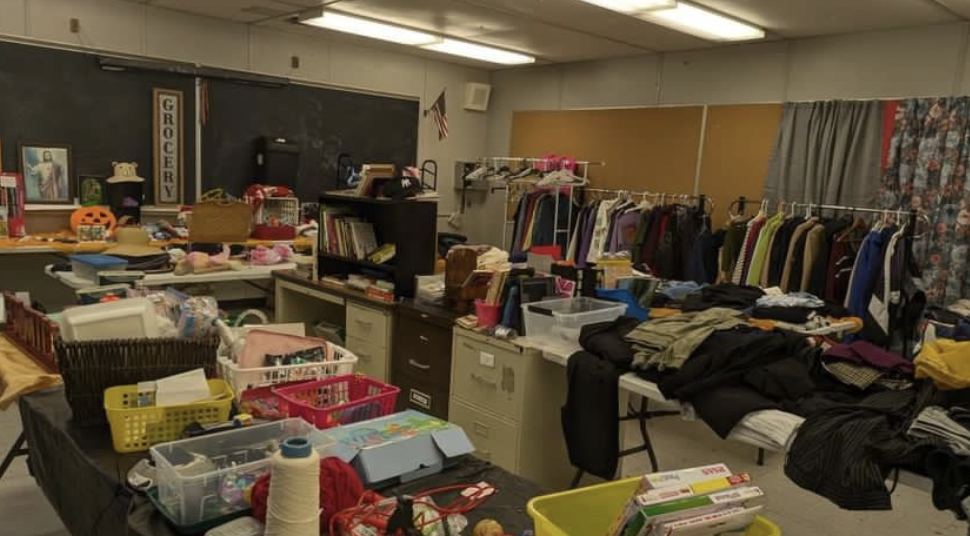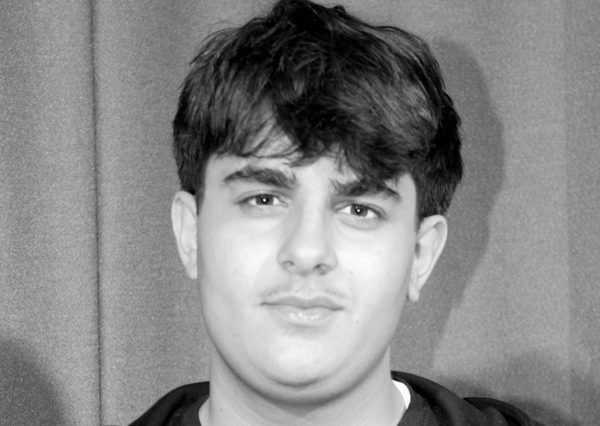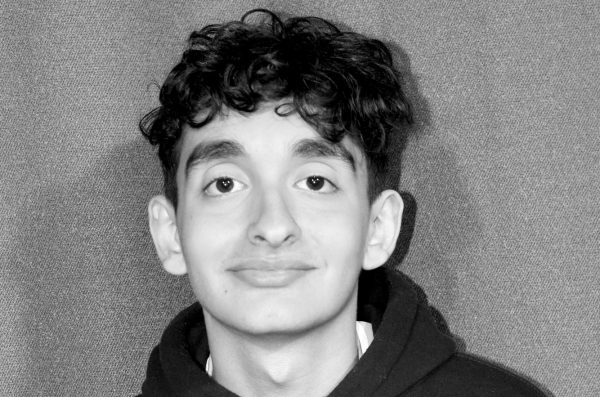This year, New York City schools faced possibly one of the biggest changes in school policy in recent history. Effective August 1, 2025, New York State legislature required all New York State schools to create a policy that prevents students from using their personal electronic devices during school hours on school property.
These devices are classified as any electronic device capable of using the internet, such as phones, smartwatches, laptops, tablets, iPads, earbuds, and other portable music players. Each school in the New York City Department of Education were told they were responsible for creating their own school policy. Cardozo’s policy includes individual pouches with locks.
Cardozo’s Cell Phone Policy
On the first day of school, students were given the pouch with a velcro and buckle to lock their phones in during the school day; from admission to dismissal, including lunch. Every day during entry, students must now show staff their student ID and a sealed pouch containing the device(s) in order to pass through the gates, ensuring it is locked. During dismissal, they can have their pouches unlocked by a designated staff member by exiting only through the front lobby, the ramp at exit 8, or the entrance to the annex.
If a student is unable to show their ID and pouch they must turn in their personal electronic devices and will not be allowed access to them until the end of the day, where they can pick them up in the Office of Climate and Culture; room 153. Additionally, room 153 holds any device too large to fit in the required pouches such as iPads and laptops.
For those who have after school activities, they must exit the building first to unlock their pouches. Then, they can return to the school by showing their ID cards. If they do not have their ID, they cannot re-enter the building.
There are a few exceptions to the phone ban. Students with an individualized education plan (IEP) or 504 Plan that requires access to an internet-enabled device will be allowed to use the device for educational purposes only or will face disciplinary charges. If a parent or guardian wishes to exclude their child from the ban for reasons such as medical and translation concerns, they must contact the parent coordinator, Ms. Troina, via email for approval.
In case of emergencies, family members can call (718-279-6500), and they will be transferred to their child’s guidance counselor to get in touch with their child. Students can also use the landlines in their guidance counselor’s office to contact their family.
Student and Staffs Report Mixed Feelings
This current cell phone ban has been met with various opinions from Cardozo students and staff. Many teachers have been expressing their support for the ban, while students dissent.
Mr. Scarola, known for being a prominent Physical Education teacher, shared his approval of the phone ban. Mr. Scarola remarked, “Students are talking to each other more now instead of looking down at their phones, so it’s nice to see the socialization being brought back.” Seeing firsthand the impact on his students has caused Mr. Scarola to believe that, “It’s a great idea.”
U.S. History teacher Mr. Mitrano also recalled the conspicuous difference in student behavior that emerged as soon as the ban was in play. “There was more interaction between students talking to each other whereas last year, when I ended a few minutes early, the kids would just jump on their phones. Now they’re actually interacting,” he explained.
Assistant Principal of English, Dance, and Library Media Mrs. Kierez feels that the phone ban is allowing students to also return to fundamentals. “It’s encouraging to see notebooks open and pens moving again,” she said. “This kind of active participation is essential for deeper learning.”
She also reflected that student-student and student-teacher relationships are thriving due to the lack of texting. “With phones out of the picture, students are more present, not just physically, but socially and emotionally. I’ve already seen more peer interaction and stronger connections forming between students and teachers.”
However, the lack of student access to personal technology has caused numerous teachers to pivot lesson plans in order to continue to support students. Mr. Morreale, another U.S. History teacher, had devised his solution to provide students with unit review practice, which is online. “We have a couple of laptop carts, and I’ll just have to make sure that we get them on the days before the tests so we can do our reviews,” he explained. “They’re important and helpful, and I don’t want to have to stop doing that.”
Mr. Georgatos, the assistant principal of Social Studies, Naval Sciences, and Music, shared his opinion, saying, “ I think it will help students’ learning. Without phones, students are more present and engaged in class discussions and activities.”
“They’re less likely to be distracted by social media or texting, which means more time spent actually learning,” he added.
With any new policy, of course, they have been some challenges and roadblocks. “There are always roadblocks when implementing a new change,” Ms. Rothenberg, Assistant Principal of Data and Testing said. “Students have figured out how to open their pouches, so now it requires some additional oversight, but for the most part students have been very respectful of the rules and placing their phones in the pouches. Logistics are always hard to figure out.”
On the other hand, many students seem to struggle with the lack of technology, claiming it interferes with their ability to get work done. “The biggest challenge so far is not being able to do my homework during lunchtime,” said senior Nashannel Grant.
Grant explained how she would typically get a head start on her homework during her lunch period, but now must wait until she gets home, where she has limited time. Communication has also been an issue. “I’ve missed so many important calls as well during the school day because my phone is in the pouch,” she added. Grant is not alone in facing issues with the ban.
Some students have expressed concerns with morning entry. “My biggest issue is how much time it takes to collect everyone’s phones and give them back,” senior Jaima Choudhury said. “Last week, I got to school at 7:50 am but couldn’t go in until 8:40 am because I was standing behind a huge unmoving line of kids.”
Senior Breanna Semexant also shared that it feels very isolating. “It feels very restricting, but at the same time, I can understand how it can help better people’s learning with the pouch.”
“I do feel like I’m constantly reaching for my phone,” she added. However, she noticed positives, as well, sharing, “I feel like not only am I paying more attention, but I’m just figuring out things to do without being on my phone for a couple of hours.”
Senior Myon Hutchinson explained that many students use music to focus when completing work, as well. “I find taking personal devices such as AirPods & headphones is 100% an unnecessary,” she said. “You can’t use them without your cell phones anyway, so I personally feel Dozo did too much with that one.”
Rachel, a sophomore at Cardozo, shared conflicting feelings over the ban. “I think it’s good they banned it because students do sometimes use it secretly in class and it becomes a distraction, but I don’t think locking it up is a solution since students know how to open it.”
Angelina, also a sophomore, agreed with Rachel’s points, adding that “It becomes very inconvenient for emergencies and makes it hard for me to contact my family.” Despite the school insisting that students and parents use school landline phones to contact parents, many students expressed that they do not feel comfortable with having to go to an office to do so.
In addition, after remote learning, technology became such a huge part of classrooms. Now, students feel like we have taken a step back with the phone ban. “It’s kind of a double edged sword because I agree that sources of distractions have gone down, but technology has become such an engrained part of our class culture that’s it’s an adjustment for even the teachers to be operating without,” Choudhury added. “I miss being able to snap a quick picture of notes I didn’t get to, or looking up an equation I need for a problem.
Ms. Rothenberg agreed, stating, “There are aspects of it that make school more difficult. For example, we usually allow students to use phones to do Kahoot and other classwork, or complete required surveys, so we will have to rethink how we approach doing things that require student access to technology.”
Some students offered alternative solutions to a complete ban. Hutchinson suggested, “Instead the policy could’ve been teachers taking our phones until the end of the period for they class, so students will be able to their phones for lunch/free periods.”
Despite the mixed reviews, staff feels that the phone ban will be here for the long haul. English teacher Ms. Lakhani said, “I think the deans and faculty are all on the same page and understand how important it is that students focus on school when they are in class.”
Disciplinary Action in Place for Violations
As students find ways around the ban, it is important to keep in mind that there is a disciplinary four-strike system set in place at Cardozo for infractions violating the phone ban.
The first strike entails a meeting with the student, a phone call home, and confiscation of their personal device until the end of the school day. The second infraction is a meeting with a parent/guardian, where the student’s device will be returned to the parent/guardian, not the student. If the parent/guardian is unable to attend the meeting that day, the device will be kept indefinitely until they are able to attend.
The third strike involves a parent/guardian meeting with the principal, and the device being confiscated each day until the end of the semester. If a student reaches the fourth strike, their parent/guardian must attend a meeting with the principal and the student’s device will be confiscated each day until the end of the year.
Depending on the type of violation, disciplinary action could also result in a suspension. Furthermore, although students are allowed to decorate their pouches, they must not be damaged. If a student damages their pouch, they must pay a $20 nominal fee.
This cell phone ban certainly has its fair share of positives and negatives that will continue to be felt by the Cardozo community for the rest of the school year. More information on this policy can be found on the school’s website under School Cell Phone & Electronic Device Policy.
